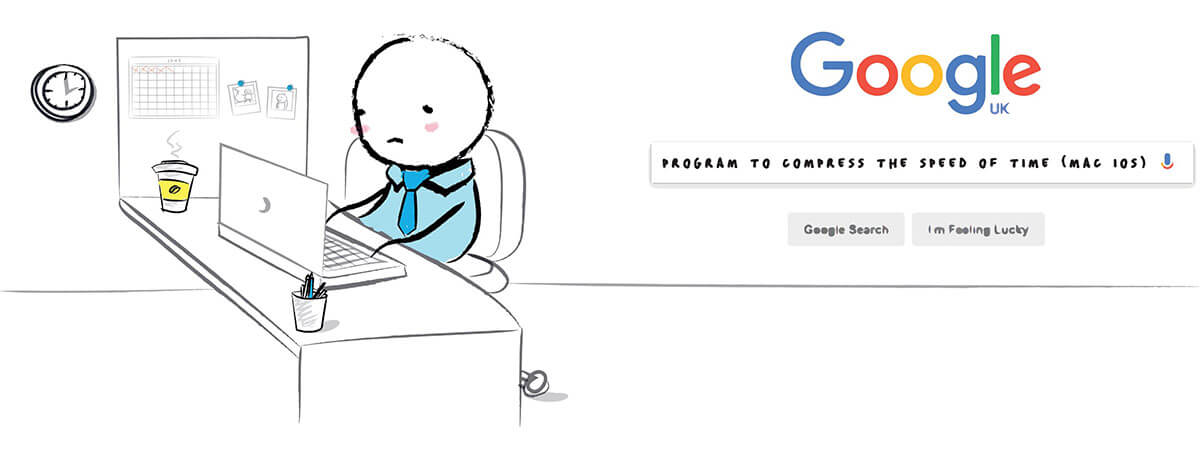[vc_row 0=””][vc_column 0=””][vc_column_text 0=””]For a couple of years now advertisers have been gradually leaning more towards in-house services and away from agency outsourcing. A recent ISBA study has translated this trend into numbers, and put forward the main reason behind it: agencies thought to be too slow. The advertisers’ issue centres around urgency. They want briefs to be turned around quickly and don’t have time to wait for the exploration of any alternative methods. We don’t need agencies, they seem to say.

Yet their hiring habits beg to differ. A Grace Blue study, quoted in B2B Marketing, told, ‘Some 40% of the UK’s top 100 advertisers now have a marketing leader with an agency background’. It’s no surprise, as agency life comprises the perfect habitat for a marketer to hone their skills. Working with a diverse team collectively dedicated to the creative execution of their work is the perfect antidote for banality, and the objectivity of the agency marketer leads to a healthy lack of inhibition, freeing them to get the best out of a project.
So the trend reflects an effort to combine this agency process with the perceived pace of in-house teams. And it’s happening on separate and larger scales, too — the appetite for greater originality also occasioned Deloitte to recently acquire Market Gravity, bringing their tally of agency snap ups to 12 since 2012. Yet whether it’s a single employee or an entire company, the question remains the same: will agency talent operate as effectively once it’s no longer part of an agency?
In other words, can you take the marketer out of the agency but not the agency out of the marketer?
It’s doubtful. The ambition seems to be an unrealistic, ‘best of both worlds’ scenario. Everything that allows an agency to be effective is intrinsic to our very nature. It’s built into the format. We’re scalable, and can be as involved or not depending on your needs, so you won’t end up with an in-house team over-equipped to deal with smaller projects. Then there’s the fact that introducing an outside-in perspective means you can avoid the pitfalls of over-insular influence. And, contrary to often uniformed popular opinion, agencies cost less. For a detailed explanation of this, take a look at Kerry Jones’ work for Fractl – suffice it to say she concludes, ‘working with an agency may still be a better value once you factor in additional employment costs, such as recruitment, benefits, employment taxes, and overhead’.

But the key enabler for all this is time. When interviewed by Advertising Age about the impact of her agency background on her role as the Senior VP-marketing strategy and communications at Mondelez International, Dana Anderson, said, ‘I know how much time and work is needed to create great ideas… Being here, I can advocate for strong briefs and adequate time to do the work’. There’s no getting away from the fact that time is something of a necessary prerequisite for excellence.
If you want the best out of a project you have to be willing to spend a little longer on it, and while it may come off as disinterest or alternative priorities on the outside, the extra time spent by the agency is actually deeper dedication. And it’s clearly a worthwhile investment or the ‘agency poaching’ trend in question wouldn’t exist. Conversely, should you ignore the need for time and rush your in-house team, you end up with, well, the Pepsi advert.
It’s all very reminiscent of the proverb, ‘If you want to go fast, go alone. If you want to go far, go together’.[/vc_column_text][/vc_column][/vc_row][vc_row full_width=”stretch_row” el_id=”countdown” el_class=”countdown” css=”.vc_custom_1496752711271{background-color: #f9e11e !important;}”][vc_column css=”.vc_custom_1496753982394{padding: 0px !important;}”][vc_column_text css=”.vc_custom_1496754023450{margin: 0px !important;border-width: 0px !important;padding: 0px !important;}”]
5
4
3
2
1
0
9
8
7
6
5
4
3
2
1
0
5
4
3
2
1
0
9
8
7
6
5
4
3
2
1
0
9
8
7
6
5
4
3
2
1
0
9
8
7
6
5
4
3
2
1
0
[/vc_column_text][/vc_column][/vc_row]


